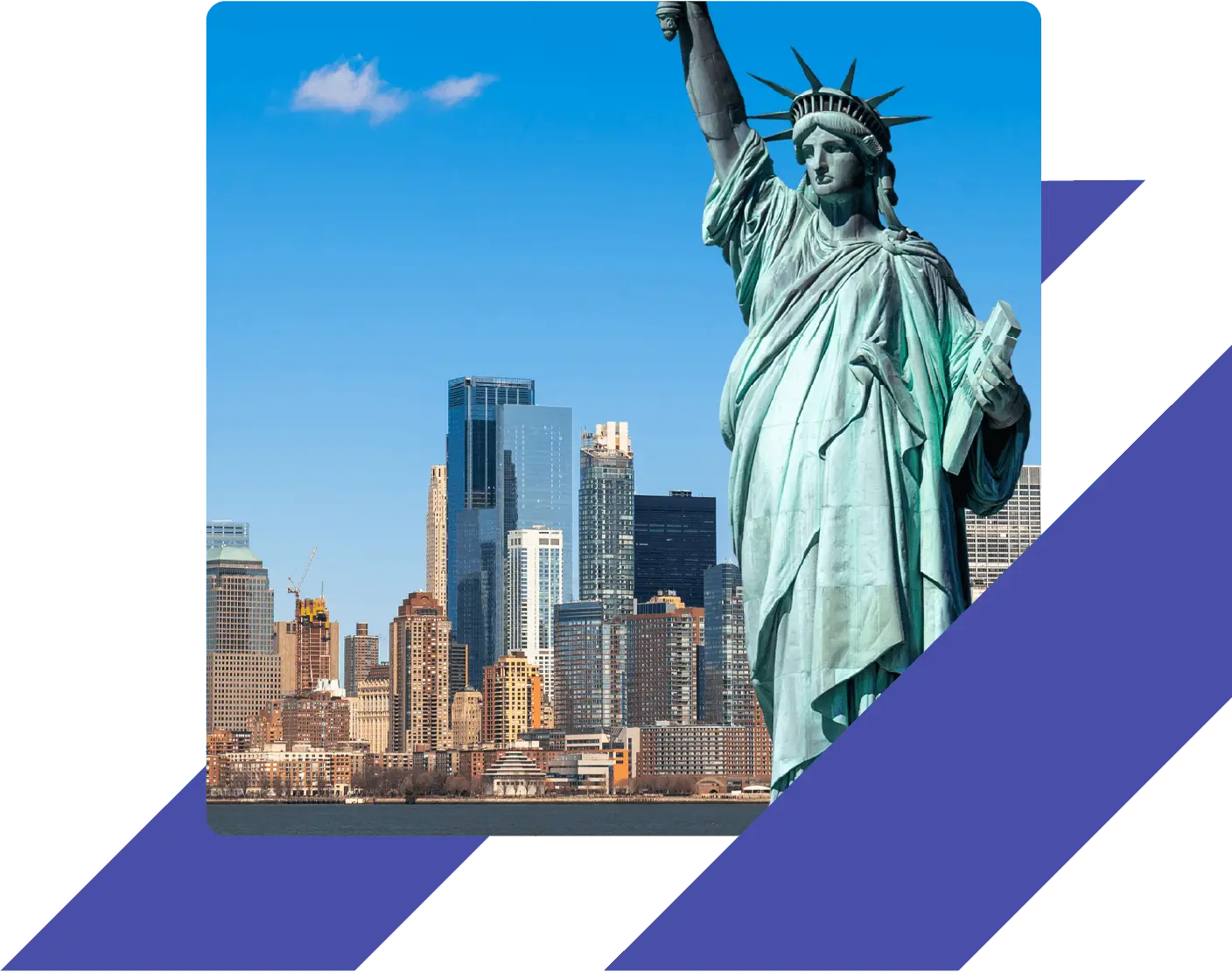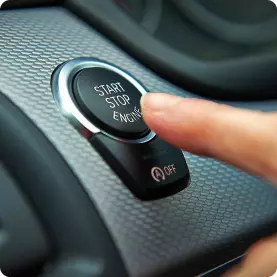New York DWI Laws: Guide to Drunk Driving Charges and Penalties
New York State DWI laws stand out for their zero-tolerance approach, unique penalty thresholds, and stiff consequences on repeat offenses. New York applies a comprehensive system of penalties that include license suspension, fines, possible jail time, and mandatory ignition interlock device installation for most convictions. Lawmakers keep tightening drunk driving laws to reduce recidivism rates and boost public safety.

Getting Started
Being charged with a DWI in New York initiates both administrative proceedings through the Department of Motor Vehicles (DMV) and criminal proceedings in court. The state classifies impaired driving offenses as DWI (Driving While Intoxicated), DWAI (Driving While Ability Impaired), and specific offenses for drivers under 21 under its Zero Tolerance Law.
Important Note: While this page provides detailed information, DUI.org does not offer legal advice. Laws can change, so consult a qualified DUII attorney for personalized guidance.
Definitions to Know
DWI (Driving While Intoxicated)
New York’s legal term for driving with a blood alcohol concentration (BAC) of 0.08% or higher for most drivers.
DWAI (Driving While Ability Impaired)
Applies when a driver’s ability is impaired by alcohol (BAC between 0.05% and 0.07%) or drugs.
IID (Ignition Interlock Device)
A breathalyzer installed in a vehicle that prevents it from starting if alcohol is detected on your breath.
New York Department of Motor Vehicles
The New York Department of Motor Vehicles (DMV) is the state agency responsible for licensing drivers, registering vehicles, and enforcing traffic safety rules, including those involving DWI cases. When you face a DWI, the DMV decides if you can keep your driver’s license and handles the administrative hearing that could lead to suspension or revocation, even before your criminal case concludes. The DMV coordinates with law enforcement and the courts to process penalties, monitor repeat offenses, and manage ignition interlock requirements to keep dangerous drivers off the road. Its actions are separate from what happens in court, so DMV penalties can affect you even if you beat your criminal charges.
Steps to Take After DWI Arrest in New York
- Hire an Attorney
Legal counsel can help navigate both administrative and criminal processes.
- License Suspension
Your driver’s license will likely be suspended at your initial hearing pending prosecution if your BAC was 0.08% or higher.
- Request a DMV Hearing
You have 15 days from the date of initial hearing to request an administrative hearing with the DMV to contest the suspension.
- Apply for a Conditional License
If eligible, you may apply for limited driving privileges after serving a minimum suspension period and enrolling in the Impaired Driver Program.
- Install an Ignition Interlock Device
Required for all DWI convictions under Leandra’s Law, even first-time offenses.
Explore IIDs - Complete Substance Abuse Evaluation
You’ll need an assessment and may need to complete a recommended treatment program.
- Pay Fines and Fees
Court fines range from $300-$10,000 depending on the offense, plus surcharges and license reinstatement fees.
- Complete the Impaired Driver Program
This mandatory alcohol education course may be required for conditional license eligibility and license restoration.
- Attend Court Proceedings
Your case will proceed through criminal court independently from administrative actions.
- Probation
Probation terms may include regular check-ins and abstaining from alcohol or drugs.
DWI Laws in New York
What Are the Legal Driving Alcohol Limits in New York?
In New York, it’s illegal to drive if you’re under the influence of alcohol, drugs, or both. The law sets clear blood alcohol concentration (BAC) limits based on your age and license type. Law enforcement officers use breathalyzers and other chemical tests to determine BAC levels.
| Driver Category | Illegal BAC Limit |
| Age 21 and over | 00.08% BAC (DWI), 0.05%-0.07% (DWAI) |
| Commercial Drivers (CDL) | 0.04% BAC |
| Under 21 | 0.02% BAC (Zero Tolerance Law) |
Felony vs. Misdemeanor DWI Charges
In New York, DWI offenses can be classified as either misdemeanors or felonies depending on circumstances and prior convictions.
Misdemeanor DWI:
- First-time DWI offense with no aggravating factors
- Maximum of 1 year in jail, fine of $500-$1,000, and license revocation for at least 6 months
Felony DWI:
- Second DWI offense within 10 years
- Third or subsequent offense
- DWI with a child passenger under 16
- DWI causing injury or death
- Penalties include up to 7 years in prison, fines up to $10,000, and license revocation for at least 1 year
Does New York Have Drunk Driving Diversion Programs?
New York offers the Impaired Driver Program (IDP) which is not technically a diversion program but serves as a path to conditional license eligibility. Participants must:
- Pay a participation fee
- Attend weekly sessions for a minimum of 7 weeks
- Complete a minimum of 16 hours of classroom education
- Be free of the influence of alcohol or any other mood-altering substance during or prior to sessions
- Complete any recommended treatment
Successful completion can lead to earlier license restoration but does not generally result in dropped charges.
Refusing a Chemical Test Under New York DWI Law
New York enforces an implied consent law. When you drive on New York roads, you automatically consent to chemical testing if arrested for suspected DWI/DWAI. Refusing a chemical test carries its own penalties:
| Offense | Penalties for Test Refusal |
| First Refusal | $500 civil penalty, 1-year license revocation |
| Second Refusal (within 5 years) | $750 civil penalty, 18-month license revocation |
| CDL Holders | 18-month CDL disqualification (first offense), permanent disqualification (subsequent offense) |
DWI Penalties & Consequences
Penalties for DWI Offenses in New York
New York imposes escalating penalties for each DWI conviction, with increased severity for repeat offenses:
DWAI (Alcohol) – First Offense
Potential Jail Time: Up to 15 days
Fines: $300-$500
License Action: 90-day suspension
Other: $395 surcharge, other fees apply
DWAI (Alcohol) – Second Offense (within 5 years)
Potential Jail Time: Up to 30 days
Fines: $500-$750
License Action: At least 6-month revocation
Other: $395 surcharge, other fees apply
DWAI (Alcohol) – Third/Subsequent Offense (within 10 years, misdemeanor)
Potential Jail Time: Up to 180 days
Fines: $750-$1,500
License Action: At least 6-month revocation
Other: $395 surcharge, other fees apply
DWI/DWAI-Drugs – First Offense
Potential Jail Time: Up to 1 year
Fines: $500-$1,000
License Action: At least 6-month revocation
Other: $395 surcharge, other fees apply
DWI/DWAI-Drugs – Second Offense (within 10 years, E felony)
Potential Jail Time: Up to 4 years
Fines: $1,000-$5,000
License Action: At least 1-year revocation
Other: $520 surcharge, other fees apply
DWI/DWAI-Drugs – Third Offense (within 10 years, D felony)
Potential Jail Time: Up to 7 years
Fines: $2,000-$10,000
License Action: At least 1-year revocation
Other: $520 surcharge, other fees apply
Notes:
- Revocation and suspension durations are minimums; actual periods may be longer.
- All alcohol/drug convictions carry mandatory surcharges and fees: typically $395 for misdemeanors, $520 for felonies.
- The DMV page also details additional penalties for more than three convictions within 10 years, chemical test refusals, and other scenarios not covered in this chart.
Aggravating Factors That Increase New York DWI Penalties
In New York, these aggravating factors lead to elevated criminal charges, harsher fines, longer jail or prison time, extended license suspensions, and additional requirements:
- High BAC Level: BAC of 0.18% or higher results in Aggravated DWI charges with higher penalties
- Child Passengers: DWI with a passenger under 16 is an automatic felony
- Causing Injury or Death: Results in additional criminal charges such as vehicular assault or vehicular homicide
- Multiple Convictions: Three or more DWI offenses within 10 years can result in permanent license revocation
- Commercial Drivers: Lower BAC thresholds and more severe license disqualifications
- Open Container: Additional penalties for having open containers of alcohol in the vehicle
- Chemical Test Refusal: Additional administrative penalties beyond the DWI charge itself
Driving Without a Valid License
Driving while your license is suspended or revoked due to a DWI offense is a serious crime in New York. It can be charged as Aggravated Unlicensed Operation (AUO), with three degrees of severity:
- Third-Degree AUO: A misdemeanor punishable by fines up to $500, up to 30 days in jail, and extended license suspension
- Second-Degree AUO: For three or more suspensions or DWI-related suspension; punishable by fines up to $1,000, up to 180 days in jail
- First-Degree AUO: For DWI while license is already suspended for DWI; a felony punishable by fines up to $5,000 and up to 4 years in prison
This can result in vehicle impoundment, substantial additional fines, insurance increases, and even imprisonment.
License Suspension
Who Determines if You Can Continue Driving After a DWI
In New York, both the DMV and the courts play roles in determining driving privileges after a DWI:
- DMV: Handles administrative license suspensions and revocations, which occur automatically based on chemical test results or refusals.
- Courts: Impose criminal penalties including additional license revocations and can mandate an ignition interlock device.
The administrative process begins at your initial hearing with a mandatory suspension pending prosecution if your BAC was 0.08% or higher. This is separate from any court-imposed penalties following conviction.
How Long Will Your License Be Suspended?
License suspension or revocation periods in New York depend on the offense and any prior convictions. Here’s how long your license may be suspended for a DWI in New York:
| Offense | Suspension/Revocation Period |
| DWAI (Alcohol) – First Offense | 90-day suspension |
| DWAI (Alcohol) – Second Offense | 6-month revocation |
| DWI or DWAI-Drugs – First Offense | 6-month minimum revocation |
| DWI or DWAI-Drugs – Second Offense (within 10 years) | 1-year minimum revocation |
| DWI or DWAI-Drugs – Third Offense (within 10 years) | 1-year minimum revocation |
| Chemical Test Refusal – First Instance | 1-year revocation |
Steps to Reinstate Your License
To reinstate your driver’s license after a DWI-related suspension or revocation in New York:
- Serve the full suspension or revocation period
- Pay the required civil penalties
- Pay a license reinstatement fee
- Complete the Impaired Driver Program if required
- Complete any court-ordered treatment program
- Install an ignition interlock device if mandated (usually for at least 6 months)
- Pass a vision test and potentially a written and road test (for revocations)
Restoring Your Driving Privileges
After a DWI conviction in New York, there are specific paths to regaining some or all your driving privileges. These options vary based on your offense history, compliance with court orders, and willingness to meet strict requirements.
Eligibility for a Conditional Driver’s License
Conditional licenses typically allow driving to/from: work, school, medical appointments, childcare related to employment, IDP classes, and probation appointments.
New York offers conditional licenses that allow limited driving privileges during a suspension or revocation period. Eligibility requirements include:
- Enrollment in the Impaired Driver Program (IDP)
- No previous DWI-related conditional license within the past 5 years
- Serving the minimum suspension period (typically 30 days for DWI)
- Installation of an ignition interlock device if required
- Not being disqualified for other reasons (like having a commercial driver’s license)
How to Apply for a Conditional Driver’s License
To obtain a conditional license in New York after a DWI:
- Enroll in the Impaired Driver Program through a DMV-approved provider
- Wait the mandatory minimum suspension period (typically 30 days)
- Install an ignition interlock device if required by your conviction
- Pay the required fee for a conditional license
- Present documentation from your IDP enrollment at your local DMV office
- Adhere strictly to the limited driving privileges granted
Ignition Interlock Device (IID) Requirements
Under Leandra’s Law, anyone convicted of a DWI in New York must install and maintain an ignition interlock device:
- Must be installed in any vehicle you own or operate
- Required for a minimum of 12 months for most offenses
- Must be installed within 10 days of sentencing or release from incarceration
- You must pay for installation and monthly maintenance
- Tampering with or circumventing the device is a criminal offense
- Positive readings (when you fail a test) are reported to monitoring authorities and may result in additional penalties
Conditional licenses require IID installation before they can be issued to DWI offenders.

Selecting the right ignition interlock provider can make a world of difference.
SR-22 Insurance Requirements
Under Leandra’s Law, anyone convicted of a DWI in New York must install and maintain an ignition interlock device:
- Must be installed in any vehicle you own or operate
- Required for a minimum of 12 months for most offenses
- Must be installed within 10 days of sentencing or release from incarceration
- You must pay for installation and monthly maintenance
- Tampering with or circumventing the device is a criminal offense
- Positive readings (when you fail a test) are reported to monitoring authorities and may result in additional penalties
Conditional licenses require IID installation before they can be issued to DWI offenders.
Substance Abuse Evaluation and Treatment
New York’s approach to substance abuse evaluation and treatment for drivers convicted of DWI/DWAI includes:
- Screening: Initial assessment as part of the Impaired Driver Program
- Evaluation: Professional assessment to determine the extent of alcohol/drug issues
- Treatment Referral: If the evaluation indicates a substance use disorder, referral to appropriate treatment
- Completion Requirements: Must complete recommended treatment to restore full driving privileges
- County-Based Programs: Available throughout New York state with a directory maintained by the DMV

Understand what to expect and how to prepare for a substance abuse evaluation.
FAQs About DWIs in New York
How long does a DWI stay on your record in New York?
A DWI conviction remains on your criminal record permanently, and on your driving record for at least 15 years and a DWAI for 10 years.
Can you get a conditional license if you refuse a chemical test?
No. Refusing a chemical test makes you ineligible for a conditional license during the revocation period.
Is a first-time DWI offense in New York a felony?
Generally no, unless it involves a child passenger under 16 or causes serious injury or death.
How does New York’s Zero Tolerance Law affect drivers under 21?
Drivers under 21 with a BAC of 0.02% to 0.07% face a 6-month license suspension, civil penalty of $125, and a $100 fee to terminate the suspension.
Can you drive to Canada with a DWI conviction?
Canada considers DWI a serious offense and may deny entry to individuals with DWI convictions, even for a first offense.
Sources
- New York State Department of Criminal Justice Services. (n.d.). Frequently asked questions. https://www.criminaljustice.ny.gov/ops/erc/faqs.htm
- New York State Department of Motor Vehicles. (n.d.). Penalties for alcohol or drug-related violations. https://dmv.ny.gov/points-and-penalties/penalties-for-alcohol-or-drug-related-violations
- FindLaw. (n.d.). Your New York City DWI case: The basics. https://www.findlaw.com/state/new-york-law/your-new-york-city-dwi-case-the-basics.html
- National College for DUI Defense. (n.d.). New York DWI laws. https://www.ncdd.com/new-york-dwi-laws
- New York State Department of Motor Vehicles. (n.d.). You and the drinking and driving laws. https://dmv.ny.gov/document/c-39ddl-you-and-drinking-driving-laws-pdf
- New York State Unified Court System. (n.d.). DWI information. https://ww2.nycourts.gov/courts/7jd/courts/city/criminal/DWI.shtml
- New York State Department of Motor Vehicles. (n.d.). Leandra’s Law & ignition interlock devices. https://dmv.ny.gov/points-and-penalties/leandras-law-ignition-interlock-devices
- New York State Department of Motor Vehicles. (n.d.). Impaired driver programs (IDP) by county. https://dmv.ny.gov/points-and-penalties/impaired-driver-programs-idp-by-county
Get support.
What is next? We can help you through the process. Give us a little information and we can support you through the next steps.
All fields are required.